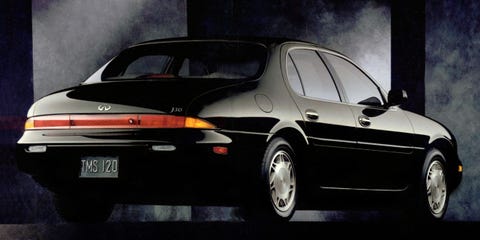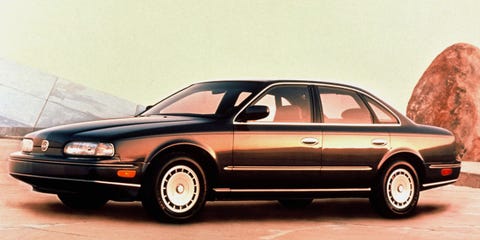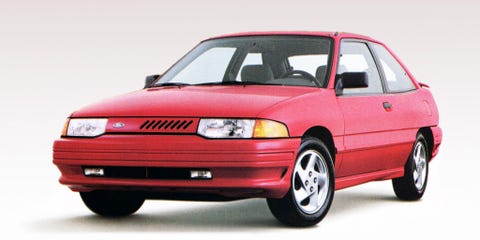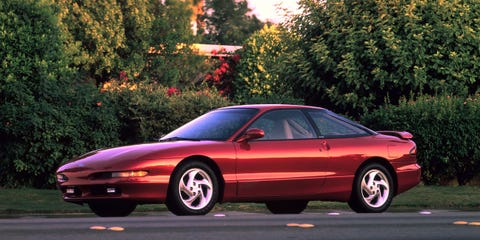Your Next Car Salesperson Won’t Be a Car Person, and Here’s Why
It’s always been about moving metal, but changes at the dealer level are causing the enthusiasts to quit.
BY JACK BARUTH GETTY IMAGESDMITRY ROGULIN
GETTY IMAGESDMITRY ROGULINDid you know that nostalgia is an evolutionary adaptation in human beings? It’s true. We evolved nostalgia to make us feel better about both the past and the future, which makes us more likely to survive said future. I had a sharp reminder of this when a long-overdue basement cleaning unearthed a journal I’d written during my freshman year of college. Apparently I hated the place. Which is odd, because when I think about it now I mostly remember people being deeply interested in my thoughts concerning the literature of the Sixties. I’ve forgotten the arguments and the uncertainty and the sullen moments where you sit with someone at a depressing residence-hall meal and wait for them to say something snippy so you can be furious in return.
I can also be deeply nostalgic about the few years I spent selling cars. Turns out I’m not the only one. Dennis Prager, a classically educated social commentator who writes about everything from the Torah to pop culture, just used the car-sales profession as an opportunity for a deeply nostalgic take of his own:
In every instance, the salesperson was sweet, unenthusiastic and largely ignorant of the car in which I was interested.
All of them answered most of my questions–such as "Is this SUV available in all-wheel-drive?"–with some version of "l'll look it up."
I remember young (and old) car salesmen who loved cars. Sure, they would exaggerate a car's qualities, but they knew all about it–inside and out. But this past week, not one of the salespeople said anything about the car during the test drive. Unless I asked questions, their only words were "Make a right at the next corner."
Mr. Prager, I’m afraid you’re wearing rose-tinted glasses here, and I should know. After all, I was once the rarest of creatures, both now and then: an automotive enthusiast stuck in the car-sales game. I loved cars so much I took a series of crummy jobs in my youth just to be closer to them. Parts driver, janitor, credit analyst, collector, cross-state title specialist. Finally, around my 22nd birthday, I made it all the way to the sales floor at an Infiniti dealer.
I was surrounded by a rogue’s gallery of thoroughly broken people: the former tennis pro with addictions to drugs I couldn’t even identify, the recently-divorced society matron who cleared full-sticker deals from her ex-husband’s guilt-ridden friends, the pixie-ish charmer who never sold a car to another woman, the bodybuilder and wanna-be model who brushed his veneers every 90 minutes above the showroom water fountain. None of them knew a single thing about the cars.
My fellow salespeople didn’t know the difference between the Q45, the Q45a, and the Q45t. When pressed, their answer was the same one Mr. Prager got from today’s kids: “I’ll look it up.” Which, in those days, meant “asking that sullen kid who rides an old Ninja 600 to work, wearing shoes with holes in them.” I was their Wikipedia and Google, all in one.

INFINITI
I was obsessed. I could explain the differences between a J30 and a J30t in mind-numbing detail, but more than that I could tell you anything you could possibly want to know about the used inventory. The first car I ever sold was a used BMW 525i, to an Army sergeant; he left the showroom with a handwritten list of parts and service providers, along with a spotter’s guide to which junkyard wheels would be the correct offset to spiff up his new ride.
If knowing about cars made you a good salesperson, then I was a good one. Yet I spent month after month as low man on the sales-rank totem pole, beaten out of my socks by people who couldn’t even remember the options list for the non-touring J30. (I’ll tell you now, 25 years later: the base car had no available options.)
Once, the bodybuilder fellow came to me at lunch and asked me, “Hey, kid, tell me a story that I can tell people about the Q45, so they’ll buy it instead of whatever Lexus they sell over there.” I took a deep breath, because when I talked to customers about the Q I always discussed the technical superiority of the 4.5-liter V8 engine, and I knew he’d never remember that stuff. After thinking long and hard, I came up with something.

INFINITI
“Okay... we have a metal sunroof, and the Lexus has a glass moonroof. That sounds like a bad thing for us, but in a rollover crash you’d really rather have metal overhead than glass, even tempered glass. I’ll show you how to explain that.”
“Thanks, kid.” Later on, I heard him giving the spiel to a customer. Word for word, the way I’d taught him. His hand banged sharply on the top of the car the buyer was considering, for strong masculine emphasis. It was a G20t. Which was the only car we sold that year that came with a glass moonroof.
After six months of being America’s best-educated and worst-performing Infiniti salesman, I went to a Ford dealership. Again, I was the only “car guy” on the floor. I sold all the Mustangs, all the Probes, every Escort GT we had in stock. Which wasn’t much. Luckily for me, the older guys at the Ford shop were generally sane and they taught me how cars are actually sold. I climbed the sales charts and had one magic month where I beat everybody, even the fellow who had the lock on every Rotary and Lions Club in Columbus.
How’d I do it? By shutting up about the cars. Nobody wants to hear about the cars. It was true in 1994 and it’s true in 2018. Most of the buyers already know exactly what they want. They want something identical to, or slightly better than, what their neighbor has, at a payment they can fool themselves into accepting. Everything else is besides the point.

FORD
It’s true that my compatriots at the Ford store did, in fact, know the product fairly well. But they didn’t browbeat the customer with the information. They were veterans of the business, and they knew what was relevant and what wasn’t. They also had anywhere between five and 35 years under their belts at that same dealership. Back then, selling cars was a real job. You could feed your family doing it. My co-workers bought boats, took vacations to Europe, paid off their homes and made plans to retire on their savings. A few of them cleared $80,000 a year or more, respectable middle-class money in the '90s.
That notion of car sales being a “real job” mostly disappeared around the millennium. The plaid-jacket lifers retired or were let go. They were replaced by young people who moved the metal using “sales systems” purchased by their dealerships. Those newbies learned “one-on-one selling,” they wrote “four squares,” they were trained to “talk to the manager” every ten minutes. The old dudes at my Ford shop used to set their own prices and make their own deals without leaving the table. Today’s “sales specialists” eventually turn you over to a “closing manager” to talk the real numbers.
The young person who greets you and takes you for a spin in a mystery-wheel-drive SUV may not be on commission. In the Midwest, those people earn between eight and 12 dollars an hour. They are shuffled around between various stores in today’s mega-dealer-groups according to next week’s floor traffic estimates. The nice young man who showed you a Kia yesterday might be showing Nissans today and won't get a cut of the action for your purchase. In many situations, that's reserved for the “closing manager” who argues with you about monthly payments.
No wonder, then, that today’s greeters and/or “product specialists” don’t know anything about their products. They’re paid fast-food wages to ride around with strangers in an era where the average car buyer has below-average credit and is just trying to get approved for the next loan. It’s true that they aren’t enthusiastic about cars. Why would they be, when their personal experience in the car business is about as rewarding as stocking shelves at a grocery store?
It’s still possible to find enthusiasts at a dealer, if you look hard enough. Often, you will see them on the enthusiast forums for a particular marque, answering questions about allocations and availability. It’s worth making the trip to buy from someone like that. I bought my Accord from a fellow who volunteered as a flagger on SCCA weekends. Not everybody in the business is apathetic–but you have to be something more than apathetic yourself if you want to do business with a True Believer.

FORD
I would argue that those of us who really love cars have never had it so easy. We can get all the information online. We can connect with a like-minded salesperson, should we desire. We can do everything but sign the deal via e-mail. The days of walking into a dealer at random and being an “up” for someone who just wants to sell full-sized trucks at full-sized sticker prices should be long gone.
As for Mr. Prager and his depressing experience? Let’s say that it’s mostly the evolutionary effects of nostalgia speaking. Alternately, it might be summed up in the example question he gave his salesperson: “Is this SUV available with all-wheel-drive?” If he doesn’t care enough to know that before going in–if he’s just looking for another anonymous high-riding box like the ones driven all around him–why should the salesperson be any more enthusiastic? I can sympathize. When my friends ask me about the difference between a 570S and a 650S, or a ZL1 and a ZL1 1LE, I can get positively encyclopedic on them. But when they ask about whether such-and-such a crossover is better than the mostly identical one next to it? I’m afraid I’m gonna have to look it up.
No comments:
Post a Comment